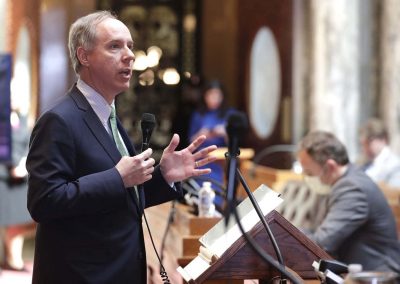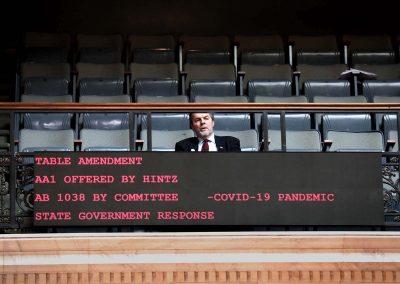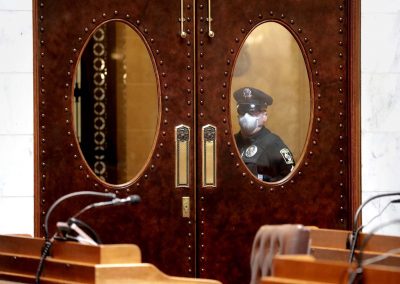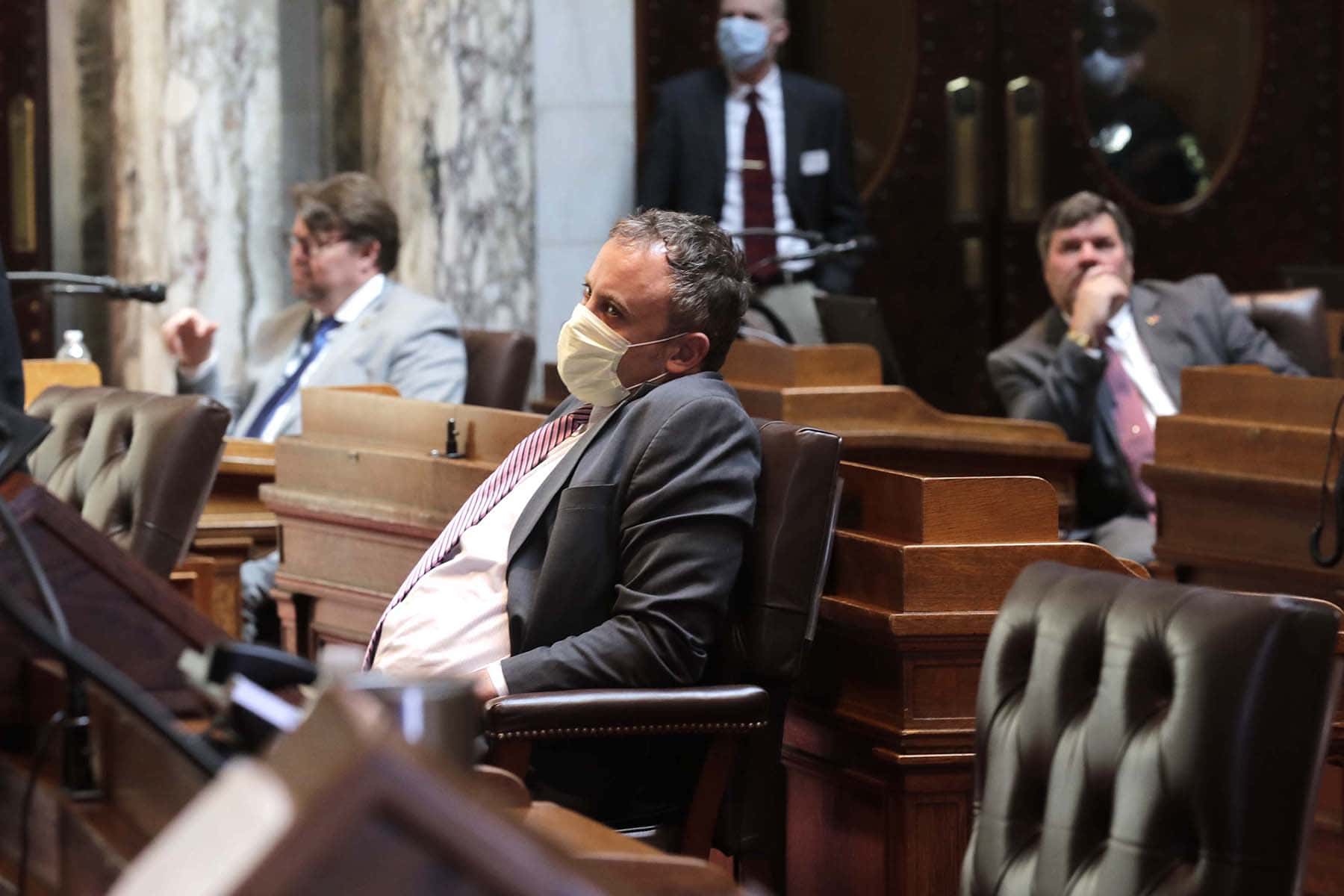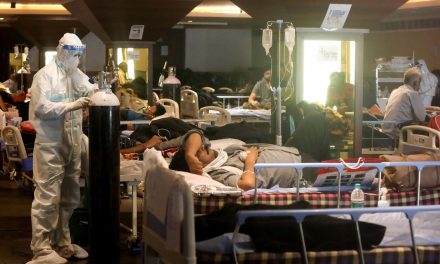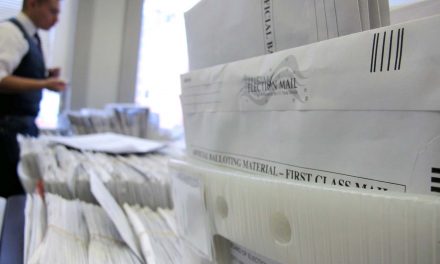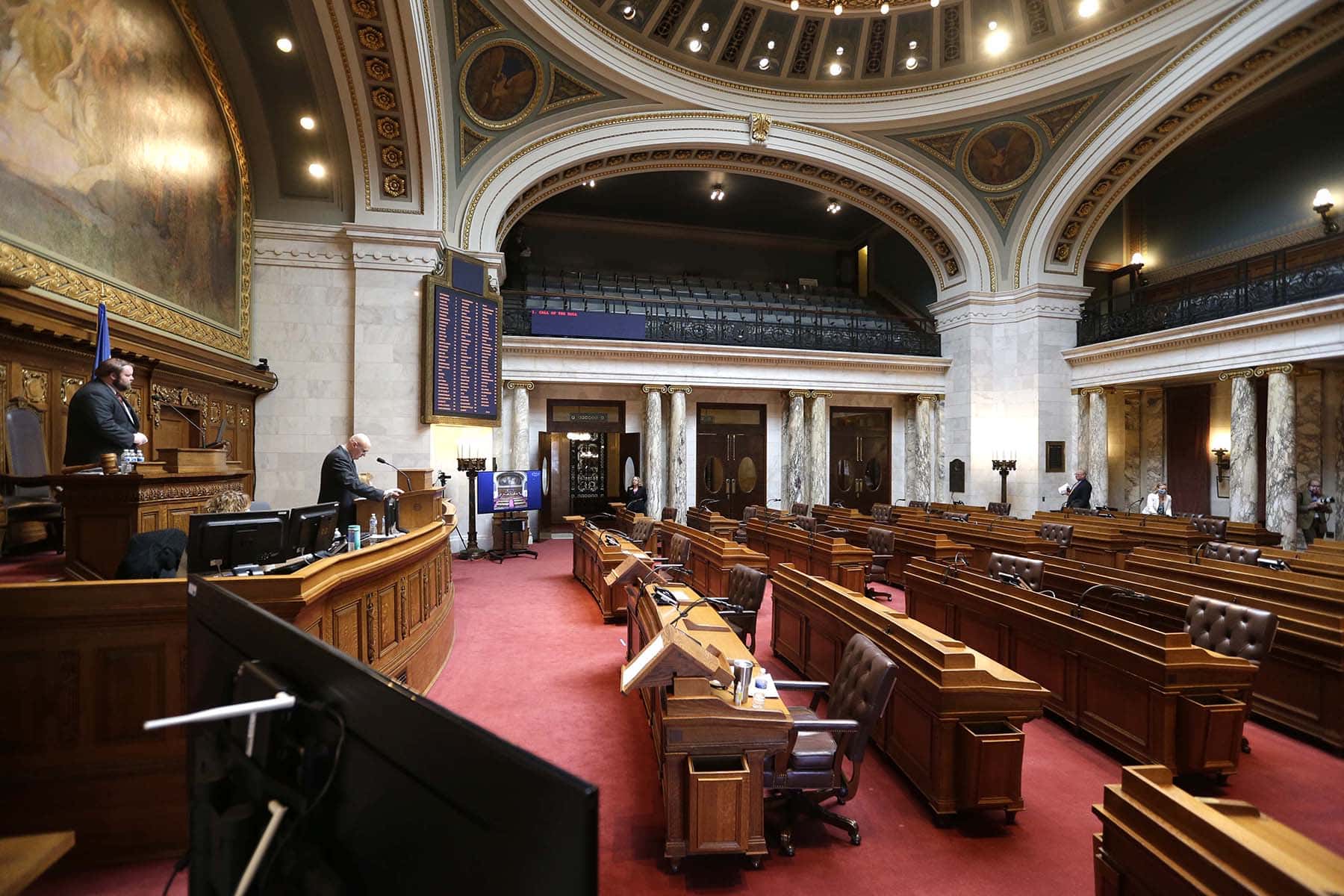
State Assembly lawmakers approved a bill on April 14 aimed at tackling some of the social and economic problems spurred by the COVID-19 pandemic in Wisconsin.
The wide-ranging bill was approved on a vote of 97-2. Two Democrats, Representatives Jonathan Brostoff and Marisabel Cabrera, both from Milwaukee, voted against the plan.
“While AB 1038 does include some important and helpful measures, they amount to little more than scraps for the thousands of Wisconsinites who have already been forced to wait while Republicans dragged their feet on providing relief to our citizens,” said Representative Brostoff. “Working people in Wisconsin had to wait over a month for any relief from the Legislature, and this Republican masterclass in tepid half-measures is all they get? Where is the needed funding for our healthcare systems and frontline workers? Where is the mortgage and rent abatement? Where are the provisions to make sure that all COVID-19 treatment is affordable? Where is the help for childcare providers? Where is the expanded food assistance for families that have lost income? Where are the measures to protect vulnerable inmates in our prison system, who are unable to practice safe social distancing? Where is the support for small businesses blindsided by this crisis? Where is the aid for nursing homes and long-term care facilities? Where are the provisions to make sure the rest of this year’s elections can be conducted safely? And again, I ask, where is the substantive relief for our working families?”
The bill includes a proposal to lift a one-week waiting period for unemployment insurance in Wisconsin. It would also require health insurers to cover COVID-19 testing and bars those insurers from discriminating against people who have or have had the virus. It would also give the Legislature’s state budget committee the power to transfer up to $75 million from other state programs to pay for things related to the pandemic. The vote happened during the Assembly’s first-ever virtual gathering. About half of the chamber’s 99 lawmakers appeared in person in Madison. The other half joined the proceedings through video conferencing software.
Democrats also wanted to create a $30 million fund for low-interest loans and grants for small businesses forced to close during the pandemic. They also wanted to direct the state to create a grant program for child care workers, including specific measures to support operations that provide services to health care workers.
“I refuse to admit this is all we can do as a state. There’s so much more we need to be doing,” Hintz said. “I came here today not to look for reasons to vote against something, but to try to get behind something that demonstrates that we need to act, we can act, that does at least what we have to do right now,” he said.
Other elements of the approved bill would:
- Bar insurers from charging patients more for out-of-network care related to COVID-19, as long as their regular provider offers those same services.
- Prohibit retailers from accepting returns of food products, personal care products, cleaning products and paper products during the public health emergency.
- Require the Wisconsin Economic Development Corp. to submit a plan to the Legislature and governor for supporting industries hurt by the pandemic, including tourism, manufacturing, agriculture, construction and retail.
- Lift annual testing requirements and teacher assessments for public, private and charter schools across the state.
- Reduce the number of required training hours for nurse aides.
The state Senate is scheduled to take up the plan in its own virtual session on Aril 15.
Laurel White
Rіck Wооd / Mіlwaukee Jоurnаl Sеntіnеl
Originally published on Wisconsin Public Radio as Wisconsin Assembly Approves Bill Responding To COVID-19 Pandemic

